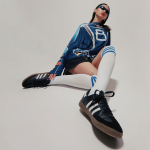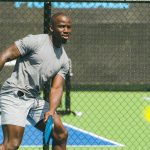Typically, the legal domain matters little in a year-in-review as the cases though lost or won, usually are limited in scope to particular patents or trademarks. However, two major cases drew the attention of the industry as a whole and might very well have repercussions throughout the years ahead. Of course, the largest courtroom drama of the year involved the failed Genesco/Finish Line merger, but as that cases effect on business in the future will really only be when Genesco has to comp against the large payment it received, its relevance will wane.
The nine-person jury deliberated two days before awarding adidas America $30.6 million in actual damages, $137 million in punitive damages and $137 million in Payless profits, according to a transcript of the proceeding.
According to Kilpatrick Stockton, the law firm representing adidas in the case, the award was the largest ever by a jury in a trademark case, with the previous largest award less than one-half the size. Payless issued a release declaring the award “excessive and unjustified.” Two days later adidas reached a settlement in a suit against Kmart that was set to go to trial in July.
The ruling not only affects adidas, but also K-Swiss for the positive, and any other brand that might want to use stripes in its designs for the negative. Apparently, all will now be fair game for a lawsuit.
The second case was between Crocs and Skechers as Crocs attempted to vigorously defend its foam creations. Crocs Inc. sued Skechers USA Inc., accusing it of selling knockoffs of its patented designs. Eventually, Crocs, Inc. and Skechers, Inc. agreed to settle all outstanding worldwide litigation, including a U.S. District Court action in Colorado.
According to a joint statement from the two companies, the lawsuits were resolved when the parties were able to agree on settlement terms that were mutually acceptable to both parties. While specific terms of the agreement were and remained confidential, Skechers agreed to discontinue the production and sale of certain molded footwear styles and focus on its core footwear styles.
The settlement just makes knocking-off Crocs less likely to be successful from a legal point-of-view. The case does not offer any statement on the business success of selling knock-off versions of the foam product.
Management Shakeup at JJB…
JJB Sports, the struggling U.K. sporting goods chain, named David Jones, the former CEO of the U.K. fashion chain Next, as its executive chairman. Peter Williams, the former chief executive of the Selfridges U.K. department store, was appointed executive director with responsibility for the groups strategic development.
Jones, who earns credit for rescuing Next from collapse in the late 1980s, was already deputy chairman of JJB Sports. Roger Lane-Smith, the current executive chairman, will become deputy chairman, reporting to David. Chris Ronnie will remain chief executive.
Jones said: “We are facing the most difficult retail environment I have ever experienced but I am looking forward to working with Chris and Peter and the rest of the executive team to re-establish JJB as a major force in the sportswear market.”
Steve & Barry's Founders Accused of Fraud…
Manhattan landlord Jeff Sutton filed a lawsuit claiming Steven Shore and Barry Prevor, co-founders of clothing and accessories chain Steve & Barry's, misallocated the $1 million Sutton paid them in May to install escalators and elevators in their store at Brooklyn's Fulton Street Mall. According to a report in the New York Post, Sutton claims he gave the retailer the money 47 days before the chain filed for bankruptcy protection last July, because he relied on “false and misleading financial statements that overstated Steve & Barry's equity and assets.”
Sutton alleges the incident reflects a larger pattern of using tenant-improvement payments to prop up a failing business. In total, Sutton claims that Steve & Barry's collected $122 million from landlords in fiscal year 2006, but only spent $59 million on building new stores.
The retailer filed for bankruptcy protection again in November with a plan to liquidate its remaining 173 stores by early 2009.
Atlanta Falcons Close Fan Stores…
The Falcons 365 stores, owned by The Atlanta Falcons, will close Dec. 31, according to the Atlanta Business Chronicle. The store at the Perimeter Mall opened in summer 2005, while the Lenox Square store opened in October 2005. The decision to close the stores reflected the tough economic climate, but was also made possible because the team has seen increased sales at its Georgia Dome store and at its online store. Kim Shreckengost, EVP and chief of staff for the Falcons, told the business publication, “Given our season, it made more sense for us to focus on online sales from our Web site, which has recently been enhanced, and to make sure we were focusing on sales on game days.”














